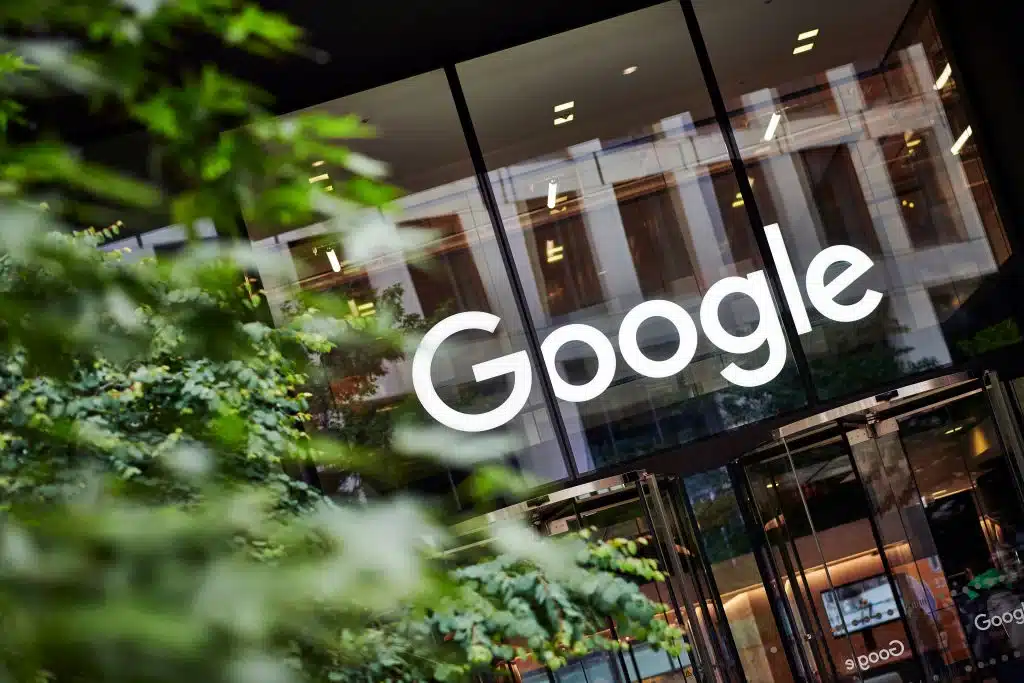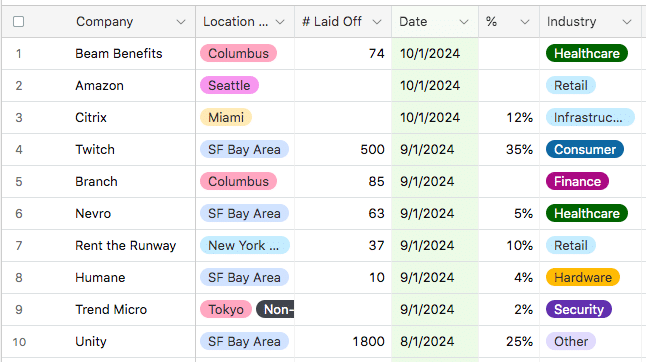Alphabet Inc.’s Google laid off hundreds of employees from multiple divisions on Wednesday as part of ongoing cost-cutting measures and organizational changes at the tech giant. The job cuts impacted teams working on Google Assistant, hardware devices including Pixel and Fitbit, and central engineering roles.
According to reports from The New York Times, Semafor, 9to5Google, and The Verge, Google eliminated “several hundred” roles from each of these units. A Google spokesperson confirmed to outlets that “a few hundred” employees were laid off from each division.
However, Google (GOOG) declined to specify if other teams saw reductions as well and did not provide a full tally of the job cuts. The Alphabet Workers Union, which represents some Google staff, criticized the layoffs in a tweet, calling them “another round of needless layoffs” and arguing that the company “cannot continue to fire our coworkers while making billions every quarter.”
Layoffs Continue Despite Economic Pressures Easing
The job cuts represent a restructuring of certain business units following organizational changes and reassessments of priorities that have been taking place at Google throughout 2023. According to Courtenay Mencini, a spokesperson for the tech giant, the layoffs aim to make the company “more efficient and work better, and to align their resources to their biggest product priorities.”
Affected employees were notified on Wednesday and reportedly began losing access to company systems and emails shortly afterward. In an emailed statement, Google said it will help “support any impacted employees as they look for new roles here at Google and beyond”. The axed roles include jobs focused on Google Assistant, Google’s main digital helper created to compete with Amazon’s Alexa and Apple’s Siri.
As per Semafor, Google aims to revamp Assistant by integrating newer generative AI technologies like its Bard model. The company announced plans last October to build an Assistant that extends beyond voice by tapping into this technology.
The hardware layoffs hit teams working on Google’s Pixel and Nest consumer devices in addition to Fitbit, which Google acquired for $2.1 billion in 2019. Most notably, Fitbit co-founders James Park and Eric Friedman are departing amid the restructuring, which will consolidate different hardware teams, sources confirmed to TechCrunch.
Park had played a key role in introducing the Pixel Watch under Google. Going forward, the company will have a single hardware engineering unit instead of separate teams for Pixel, Fitbit, and Nest products.
These Three Trends Are Influencing Tech Layoffs This Year
Since 2021, tech giants have been blaming a deterioration in the macroeconomic landscape in the form of higher interest rates and tighter financial conditions for the thousands of employees being let go.
In 2024, the situation is a bit different as the Federal Reserve has already hinted that it may start to cut rates progressively, meaning that the economic outlook is actually favoring growth companies like those in the tech industry.
So, what’s influencing these latest rounds of cuts? At first glance, companies seem to be prioritizing profits over growth as the economy may not – yet – recover to pre-cut levels. This means that, even though tech businesses will see an improvement in their top-line performance, historical absolutes will still stand way below 2020-2021 heights.
In addition, with rates still standing at historically high levels, startups and less mature tech companies still need to appeal to investors at a point when they are favoring high-quality businesses over early-stage and unproven ventures.
Moreover, the rise of generative artificial intelligence (AI) is pushing companies toward increased automation, which leads to natural downsizing. AI-powered assistants are partially influencing layoffs and the more advanced and sophisticated these systems get, the more rapidly they may reshape workforces.
Finally, the enforcement of return-to-office (RTO) policies may make it evident for bosses that some roles are either overlapping or just plain unnecessary once they are put in the context of a physical premise.
Big Tech’s Greatest Hurdles Are Looming
Google and most Big Tech companies are already struggling under the current economic pressures but they are facing an entirely separate existential threat, looming on the horizon. Antitrust and online safety regulators in the EU, UK, US, and elsewhere are ramping up their enforcement actions.
The Trump administration filed 2 antitrust lawsuits against Google and Meta and the Biden administration followed up by filing a 2nd lawsuit against Google and another targeting Amazon. The first of Google’s cases, mostly targeting its payments to Apple and others to ensure Google Chrome is the default search engine of their phones, is slowly nearing a conclusion. It is considered by many to be the most important antitrust lawsuit of this generation.
The DOJ and Google’s executives and lawyers have already made their cases in court but it may take years for a final decision to stand and even longer for significant enforcement action. The judge overseeing the case is expected to rule sometime in the spring of 2024 but he told the court, ” I have no idea what to do,” following closing statements.
While it’s technically possible that Google could be split up in the case of a DOJ victory, most legal analysts argue that this is extremely unlikely given the circumstances of the case. The most likely scenario following a Google loss is that it will be barred from paying phone manufacturers to make Google Chrome their default browser.
Job Cuts Are Once Again Sweeping the Tech Industry in the First Few Days of 2024
Google is far from being alone in cutting jobs – the overall tech industry saw over 260,000 layoffs in 2023 alone according to the analytics website Layoffs.fyi. Other major firms making sizable cuts recently include Amazon (AMZN), which laid off hundreds of employees from its Prime Video and studio units this week as well while Unity cut around 25% of its workforce or 1,800 people.
Overall, Layoffs.fyi reports that more than 3,000 employees have been let go thus far in 2024. Other companies that have also announced involuntary departures for their employees include Citrix, Humane, Twitch, and Orca Security.
Notably, Google’s parent Alphabet shed approximately 12,000 roles, or 6% of its global staff, in January 2023. While that reduction was pre-announced, this week’s rounds of layoffs were communicated to employees by VPs and HR instead of the top leadership team.
Tech giants continue to feel economic pressures heading into a potential recession as areas like online advertising are experiencing slower-than-expected growth. In recent earnings calls, Google and Alphabet executives pledged to scrutinize costs more closely to appease investors’ concerns.
Beyond tightening budgets, Google also faces intensifying competition in its core search and AI businesses. Rivals like Microsoft (MSFT) have pumped resources into tools such as Bing, Edge, and Copilot to close the gap. Startups are also pushing the boundaries of what’s possible with generative AI models.
As the tech landscape evolves rapidly, Google appears to be aiming to streamline its operations while doubling down on priority initiatives. However, ongoing job cuts are raising questions about what the firm’s long-term strategy is and are taking a human toll on workers amid industry-wide shifts.

